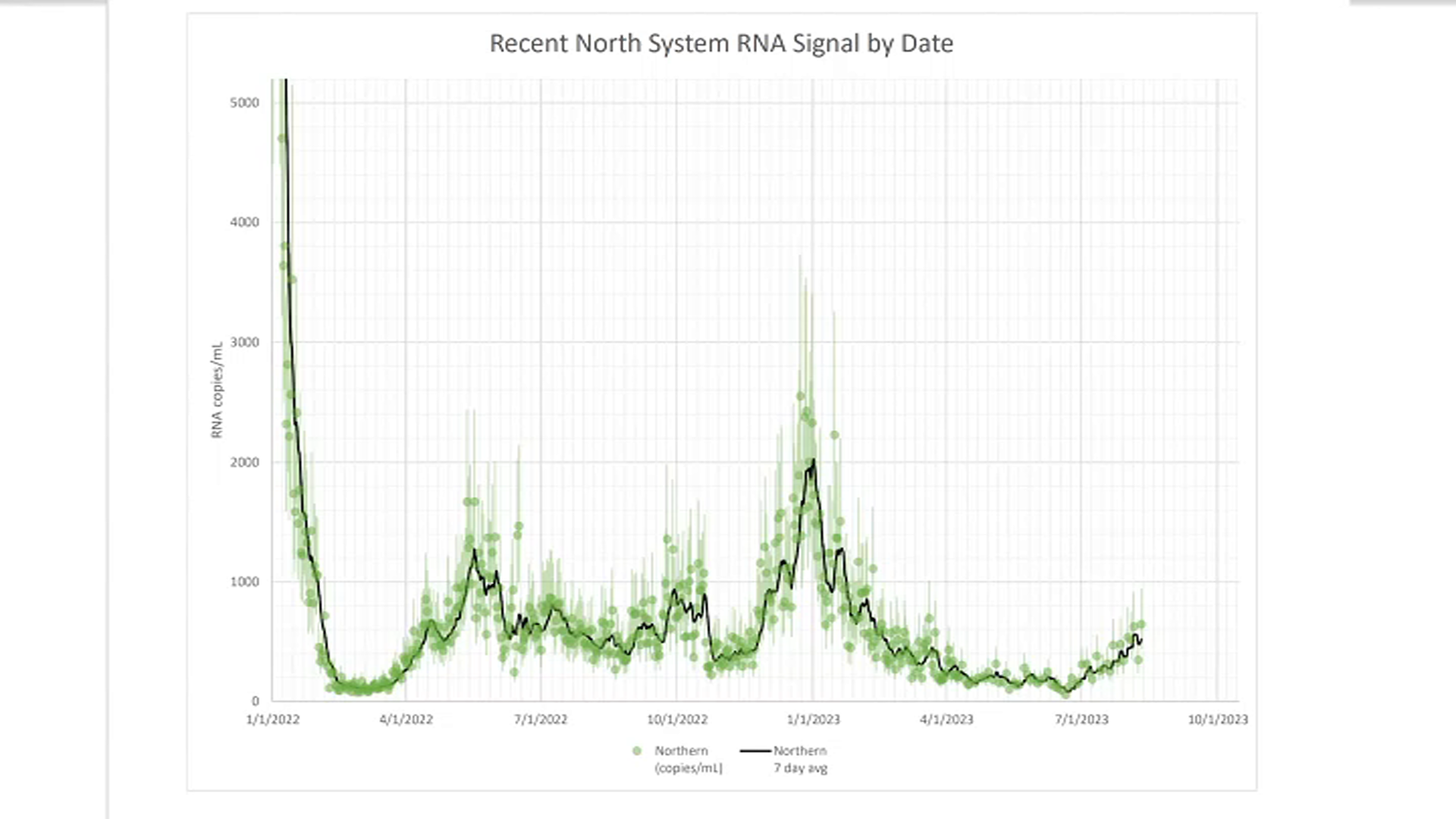As the summer winds down, cases of COVID-19 have increased in Boston and elsewhere.
In the two weeks leading up to Aug. 7, Boston saw a 94.3% increase in positive cases — averaging out to about 2.6 cases per 100,000 people. But experts say the rise in cases isn't uncommon for this time of year.
"We have seen an increase in the late summer each year," said Dr. Paul Sax, clinical director of infectious disease at Brigham and Women's Hospital. "Sometimes it's been due to an emergence of a new variant."
As COVID hospitalizations across the country have increased by 14%, the World Health Organization recently identified a new omicron subvariant, EG.5, but experts say this isn't the only variant to watch out for.
Get Boston local news, weather forecasts, lifestyle and entertainment stories to your inbox. Sign up for NBC Boston’s newsletters.
More on COVID-19
"If you want to keep an eye on a variant that's just been found out, one called BA286 does show a bit more differences from a perspective of number of mutations than the previous variants," said Sax. "We're going to be watching that very closely."
The rise in cases comes just months before the start of flu and RSV season, and just one month before the expected release of a new booster for the COVID-19 vaccine.
Sax recommends getting the booster around the same time as the flu shot in October.
"It's a monovalent booster, so it doesn't have two different strains like the one we received last fall, and it should be better targeted to the circulating omicron variants that are currently going around," Sax said.
The Biden administration says it plans on encouraging Americans to get the new booster, along with the flu and RSV vaccines.



